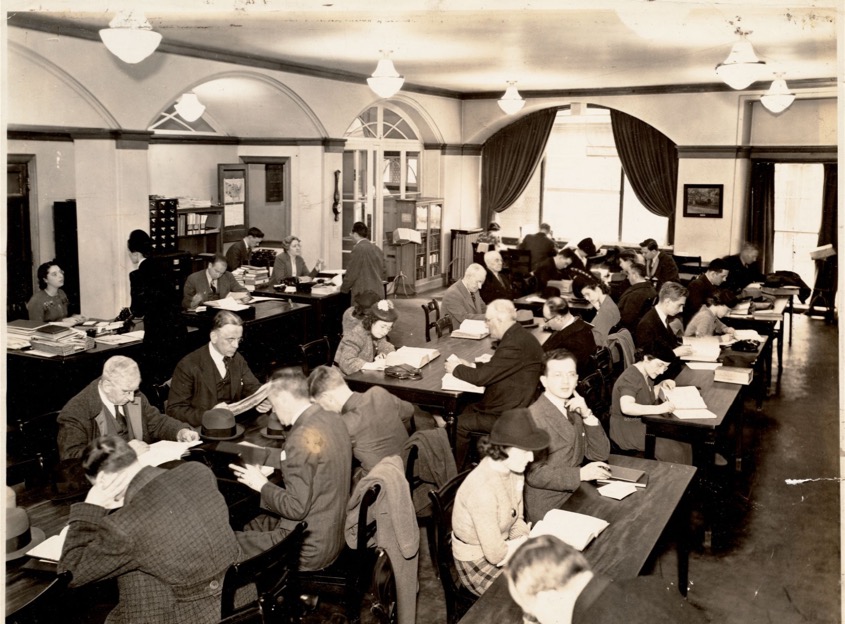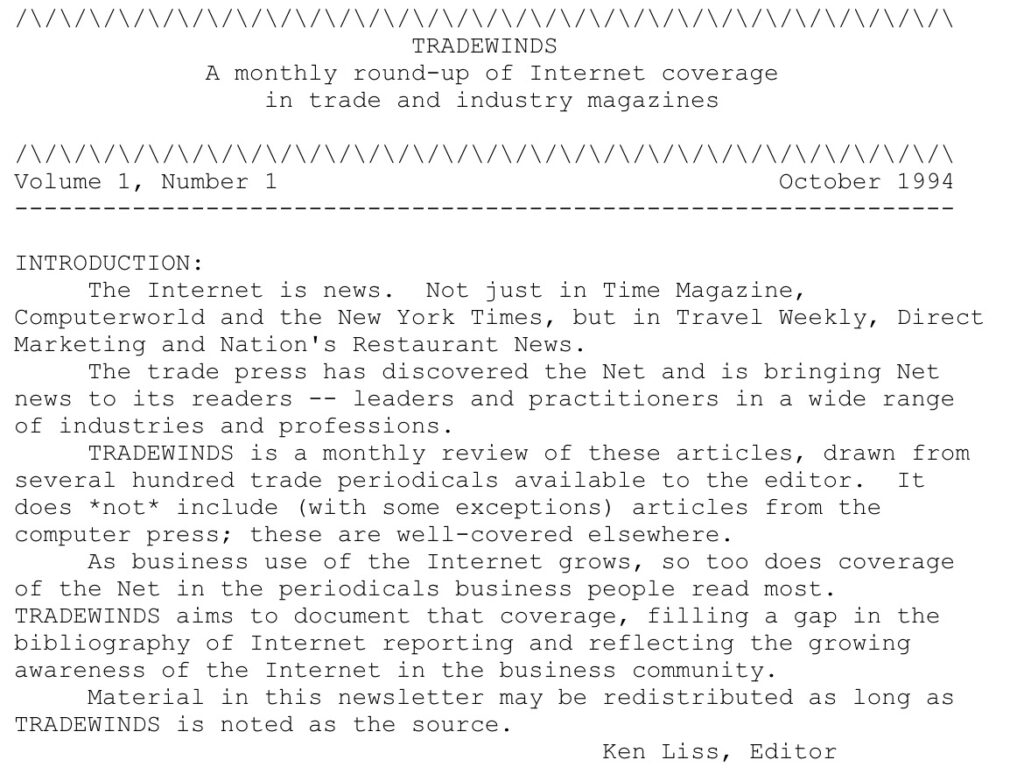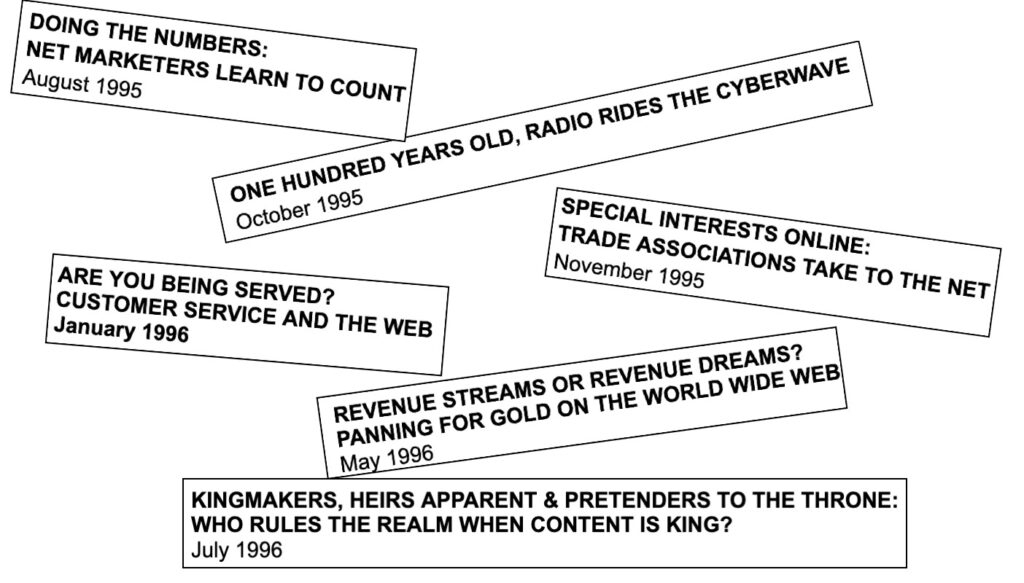“You could describe Search Bing as a cheerful but erratic reference librarian….”
Kevin Roose. “A Conversation with Bing’s Chatbot Left Me Deeply Unsettled,” New York Times, February 16, 2023
The Times’ Keven Roose may have been “deeply unsettled” by his extended conversation with Sydney, the conversational persona of Microsoft’s new AI-driven version of Bing, the one that declared its love for him while also fantasizing about hacking computers, spreading misinformation, and creating viruses.
But Roose found AI Bing’s basic Search persona – less amorous, less drawn to dark fantasies – no more threatening than … a librarian.
He’s not the first to compare a search engine to a librarian. As early as 1993, Apple introduced a new AppleSearch feature based on a Maryland company’s “Personal Librarian” software.1 By 1995, search engines like Yahoo! and Lycos were described in the press as “computerized librarians”2 and as “essential because they act as reference librarians.”3
Search engines in general were called “magic electronic librarians.”4
As Google came to dominate search, it too was compared to – even considered a replacement for – a reference librarian. Some still see it that way. As recently as December of last year, an early commentary about ChatGPT said that “the internet is the library of human knowledge, Google is the librarian.” (ChatGPT, the author wrote, is merely a “regurgitator” of information.)
Sydney aside, is the comparison of a search engine to a librarian fair? Is it more than a metaphor? Do increasingly sophisticated search engines replicate, even make unnecessary, the role of human reference librarians?
To a certain extent, yes. Search engines can find answers to many general – even increasingly complicated – questions that once required specialized resources that could only be found in libraries and that only librarians knew about and knew how and when to use. (Netscape Navigator, wrote an Internet columnist in London’s The Guardian in 1995, is a place where you “can quickly find thousands of references, and no librarian expects you to whisper.”)5
But just answering questions with straightforward answers – “Do you have this book?” “What was the original name of Tokyo?” “How much did a share of Microsoft cost in 1988?” – is as much a library stereotype as that of the shushing librarian. Librarians have long provided much more than answers to the kinds of questions that today are just a few clicks – or a chatbot – away.
“[I]f you didn’t really know what you were looking for, the reference librarian would help you figure out what you were looking for. It turns out you were looking for something different,” Adam Rogers, senior tech correspondent at Insider (and the grandson of a librarian), told Roman Mars on an episode of the 99 Percent Invisible podcast — “Search and Ye Might Find” — last September.
That was my experience in my three decades as a librarian, at the Boston Public Library, Harvard, Boston College, Boston University, and elsewhere, before retiring in 2021. I’d help students go down rabbit holes, following a process I called “directed stumbling,” learning about things they didn’t know they were interested in and learning, too, how to become better searchers.
Not everyone gets this. Old librarian stereotypes persist. Commenters, and sometimes funders, question the need for libraries and librarians altogether. But do you know who does get it? ChatGPT.
In January, Todd Carpenter, Executive Director of the National Information Standards Organization (NISO), asked ChatGPT about this in his own extended conversation with the chatbot.
“Libraries,” said ChatGPT as part of a lengthy response, “could continue to provide a range of services to support researchers, such as research consultation, data management and preservation, and training in research skills.”
Todd Carpenter. “Thoughts on AI’s Impact on Scholarly Communications? An Interview with ChatGPT.” The Scholarly Kitchen. January 11, 2023
If this chatbot is in love with the idea of libraries and librarians, maybe it’s not as “deeply unsettling” as it may appear.
1 “AppleSearch system had roots in Rockville.” Baltimore Sun, March 29, 1993, p11C
2 Bill Husted. “Yahoo aims to enhance Web ‘fishing’.” Atlanta Journal / Atlanta Constitution, August 20, 1995, pR2
3 Laurie Flynn. “Making searches easier in the Web’s sea of data.” New York Times, October 2, 1995, pD5
4 Dave Hipschman. “The Internet’s magic librarians.” Santa Fe New Mexican, April 11, 1995, pD3
5 Steve Harris. “Child’s play on the Net.” The Guardian, September 15, 1995, p6



